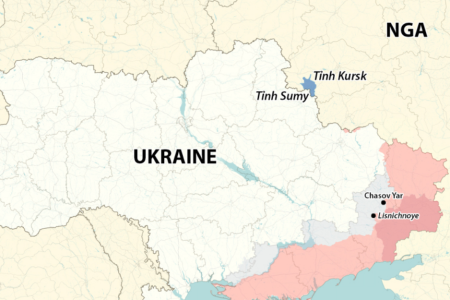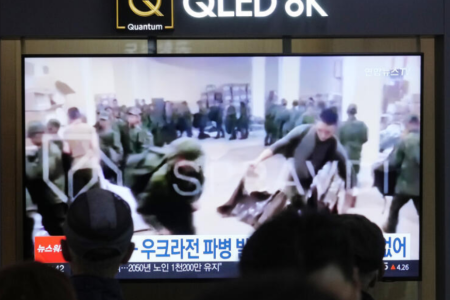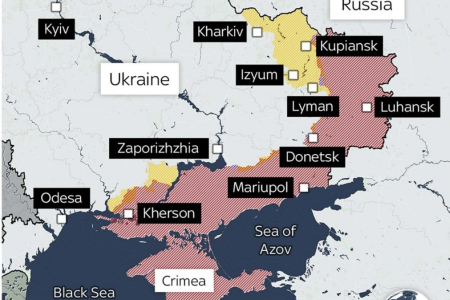
In the weeks since corona virus has spread around the world, there have been a number of cases of discrimination against Chinese people or anyone who looks like Asians.
Doubt among the Chinese has increased since the corona virus pandemic began, even in Asia.
Sammi Yang first noticed something “wrong” when she went to a clinic in Berlin (Germany) and was immediately banned from entering the building.
Other patients murmured behind the door of the clinic; while Ms. Yang – a makeup artist from China – had to wait outside in the cold January weather.
Finally, her doctor appeared. And the first sentence the doctor said was, “This is not a personal problem but …“
Then the doctor said frankly: “We do not accept any Chinese patients because of this Chinese virus,” Ms. Yang said. “I have no chance to explain and say that I am healthy.” In fact, Ms. Yang hasn’t been to China recently.
Even when sympathy increased for Chinese victims, especially after the death of Dr. Li Wenliang – the first person to warn of the arrival of corona virus – racist expressions and xenophobia related to this virus is still increasing.
Anti-China and discrimination against Chinese people is not new – Anti-Chinaism is a phenomenon that has existed for centuries.
But the multitude of ways that anti-Chineseism manifests itself in the corona pandemic suggests the increasingly complex relationship between the world and China.
Terrible criticism regarding the corona virus has emerged worldwide, expressed in a variety of ways.
In places where Asians are a minority such as in Europe, the US and Australia, anti-China seems to be motivated by superficial preconceptions that Chinese are filthy and uncivilized.
Being called a “virus”, for example, is very common. The Asian minority community has been shunned in public and has been the target of racist allegations and attacks.
Headlines like “yellow danger,” “Panda infected with Chinese viruses,” and “Chinese children should stay home” appear in newspapers in Australia and France.
With the news that the virus originated from a wildlife trade market and could be spread by bats, the familiar joke is that Chinese people who eat everything “stiring” have spread everywhere.

In Singapore and Malaysia, hundreds of thousands of people signed an online petition calling for banning Chinese nationals from entering their territory. And governments in both countries have ‘banned’ access to Chinese in some locations.
In Japan, many people call the Chinese “biological terrorists,” while the conspiracy theory about China spreading the virus to people, especially Muslims, has proliferated in Indonesia. and other places.
“In the West, China is perceived as such and removed, and the anti-Chinaism there tends to stem from unfamiliarity. But in Asia and Southeast Asia, it’s born out of too much. familiarity,” said Professor Donald Low, a scholar in Hong Kong, who studies Chinese public policy.
In Asia, over the centuries, China’s shadow has covered areas such as regional disputes, historical discontent, and the influx of Chinese immigrants. Recently, China’s claims in the East Sea (South China Sea) and their detention of Uyghur Muslims in Xinjiang Province have sparked particular anger and suspicion in Southeast Asia – home to a Muslim population rose significantly.
Even in predominantly Chinese countries, such as those in Hong Kong and Singapore, there has been an increase in anti-mainland sentiment, due in part to prolonged worries about Chinese immigrants, identity, as well as influence from Beijing.
Stigma also creates resistance against racism, as seen in this Italian graffiti painting that reads: “There is an epidemic of ignorance everywhere … We have to protect ourselves.”
Some believe that this anti-China wave is mainly due to how China has behaved, both in the current crisis and in recent years on the world stage.
The general attitude toward China is a mixture of “shocking and disdain,” Professor Low said.
For some who are considering how China handles the corona virus crisis, “there is incredible admiration for what the Chinese can do, such as building a hospital in a few days. But there are also scorned for not being able to control things like wildlife trade, or transparency.”
Ukraine’s Prime Minister, Mr. Oleksiy Honcharuk, Interior Minister Arsen Avakov and Health Minister Zoriana Skaletska came to town to ease the situation.

When President Xi Jinping sought to promote a strong and confident China, the message was that China was a responsible partner, while it had invested millions of dollars in other countries. all over the world.
But China does not hesitate to strengthen its “muscular strength” as seen on the fierce media front during the trade war with the US; or the further evidence of China’s sweeping state-spying program, and their relentless claims on disputed territories.
“They want to be loved, but also to be afraid,” said Professor Low.
China’s growing wealth has led to an ever-increasing number of tourists and students visiting and living around the world, making its presence more pronounced. Sporadic reports of bad behavior and their large presence have given rise to prejudices against rude Chinese tourists or super-rich Chinese students who splash their money through the window.
Of course, not everywhere in the world has the same suspicion about China as we can see clearly in Western Europe, the US and Asia. People in South America, Africa and Eastern Europe view China more positively, according to the Pew Research Center.
The US itself has a long history of anti-Chineseism, most notably the China Exclusion Act of 1882 which banned Chinese workers after the wave of immigration beginning with Gold Rush. The current wave coincides with this, and is probably in part due to the rise of xenophobic American indigenousism, as well as the rest of the world, Professor Sautman said.
“China is now being perceived as challenging the United States’ hegemony challenge, and almost every aspect of what the Chinese government is doing has been heavily criticized. The focus is on that, and it’s based on anti-Chineseism that’s ingrained in history, as in Asia, “he said.
Over the past few weeks, Chinese state-run media have published comments that accuse racism, notably in English and of global readership.
China has also strongly opposed international media reports on how they deal with the corona virus epidemic. China calls it either false information, or discrimination against China. Renowned host Liu Xin of CGTN compared this to “attacking China when they are weak“.

Meanwhile, tensions and disappointments to the stigma deepened in many Chinese and Asian minority communities, when the pandemic evolved complicatedly but showed no sign of ending.
“I’m scared,” said Ms. Yang, the makeup artist from Berlin that we mentioned at the beginning. Yang plans to avoid going out in the next few weeks.
Not what Ms. Yang experienced at the clinic frightened her. An Asian-American friend was recently harassed at a train station, while a Chinese woman was brutally assaulted on her way home. Berlin police classify this case as racist. The Chinese woman claimed on social media that she was called a “virus” and was beaten after she fought back.
“I don’t want to argue with people who call me a virus. All they know is what they read in the newspaper, and we can’t change their minds,” Yang said.
“Even if I show them my passport, telling them I’m resident here, it doesn’t make any sense. Because everything they see is just my Chinese face.”
China and Vietnam are two authoritarian states, they have hidden information about dangerous epidemics for people, both of which have caused the virus to spread quickly and kill thousands of people around the world. Deaths are still increasing rapidly every day.
It is the shadyness of the Communist authorities in China and Vietnam that harms the peoples of the two countries.
Hoang Trung from Ha Noi – Thoibao.de (Translated)



























